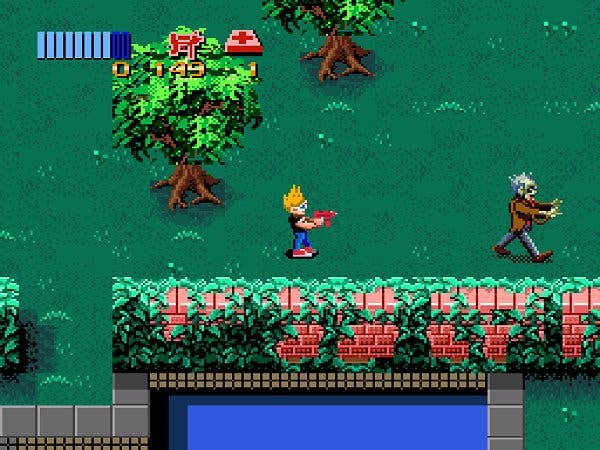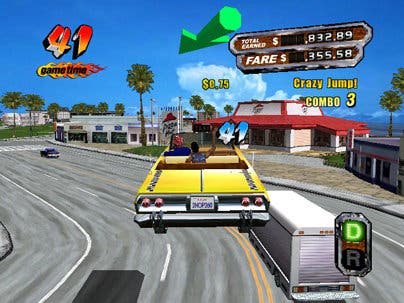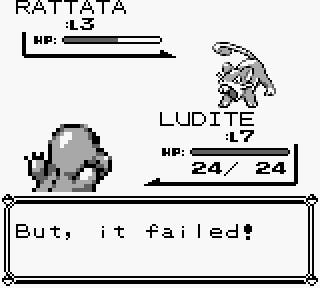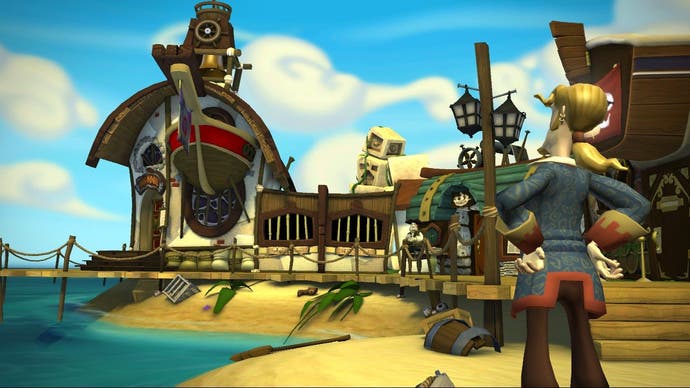Games That Define The Way Children Play
Get down with the kids to celebrate the launch of Megaton.co.uk.
Zombies Ate My Neighbors
- Konami, 1993
Developed by Lucasarts, and released simply as Zombies in Europe, this top-down shooter succeeds by tapping into the same vein of kid-friendly ghoulish humour that has kept Scooby Doo in active circulation since the 1960s. As with Pac-Man, the premise is simple - shoot monsters, save neighbours - and a large part of the game's appeal comes from the delicious panic of being chased.
Where Zombies evolves the template is in its subtle depths and generous variety. With an arsenal of different weapons to choose from, and an array of monstrous foes, there's just enough tactical value in choosing the right tool for the job to give kids an extra frisson of achievement, as does rationing the game's sparse keys.

Mostly, though, it's the endless inventiveness of the game's B-movie scenarios that makes this a kid classic. Contrary little beasts that they are, kids love the familiar yet crave new experiences. Zombies offers both, with the gameplay sticking to a tried-and-trusted run-and-shoot groove while the ever-changing levels keep things fresh.
Whether battling alien shrubs with a lawnmower, being pursued through a hedge maze by cartoonish chainsaw-wielding Jasons or battling a gigantic toddler in suburbia, Zombies never deviates from its core mechanisms, yet refuses to let the player get bored. Also: trampolines. It's out now on the Wii Virtual Console, and there's no excuse for not giving it a spin.
Crazy Taxi
- SEGA, 1999
There are a great many SEGA games that would fit in this list, its bright blue-sky gameworlds offering a cast-iron workshop in how to create enticing, inviting gaming experiences. Yet, after much reflection, it's this breezy car caper that provides the best example of how to craft a winning kid game, rather than the more obvious blue hedgehog titles.

Driving games in general are an easy entry point for young gamers, but what Crazy Taxi does so brilliantly is understand not just why kids play games, but how they play them. Sure, racing round and round a track is fun, but sooner or later every kid will try and go the wrong way. Crazy Taxi takes that impulse, embraces it and then rewards the player for doing the things most games penalise you for.
It understands that you want to make your own shortcuts, fly over every hill, screech around every corner and make cartoon people jump out of the way as you go. Tie all of that to a deliciously instinctive time-trial arcade mechanism and you've got a game that could make even the scroogiest technophobe fall in love with gaming. If this doesn't turn up on Xbox Live soon, there'll be trouble.
Pokemon
- Nintendo, 1996
As with SEGA, there's no shortage of titles in the Nintendo cupboard that would fit the criteria for this list. Mario is the obvious choice, of course, with numerous games to his credit that thoroughly deserve to be included in any superlative roundup. The same goes for Zelda. Sit a child in front of Mario 64 or Ocarina of Time and chances are they'll be hooked.

But it's actually Pokemon that best illustrates something that a lot of developers tend to miss where kids are concerned - namely, that they're not stupid. Kids are information sponges, particularly boys, and they relish the chance to collect vast amounts of data that can be fitted into a comforting framework.
That's where Pokemon comes in, a seriously hefty RPG that boasts a complex and nuanced combat system. Consider the sheer amount of knowledge and strategic thought that goes into completing one these adventures, and then weigh that up against the amount of thought that goes into yet another left-to-right button-mashing brawler based on the average kid flick. There's no competition.
The catchphrase may be "Gotta catch 'em all" but, crucially, to succeed in the game you've also gotta understand them all. Pokemon remains phenomenally popular because it doesn't underestimate its core audience, instead giving them control over a universe of arcane knowledge that their parents don't understand.
Tales of Monkey Island
- Telltale Games, 2009

The reason for this choice is simple: kids love stories. They especially love stories that have jokes and adventure and cool characters. Something else that kids love: puzzles. Put them together and you've got the template for the point-and-click genre, something that many erroneously wrote off as appealing only to terminally retro-minded old people.
Over the past few years, Telltale Games has done a commendable job in bringing this once moribund genre back to rude health and putting it in front of new audiences, either via WiiWare, Xbox Live Arcade or good old PC downloads. The purist in me wants to credit the original Monkey Island games, but the realist in me (yes, it's crowded in here) realises that the sometimes oblique puzzles are as likely to frustrate as inspire.
Telltale's modern take on the formula is less interested in stumping you for days on end and more keen to whisk you through its episodic yarn, which makes it ideal for younger gamers who want more than fast-paced action. Telltale's Wallace & Gromit episodic series is also well worth a look.
